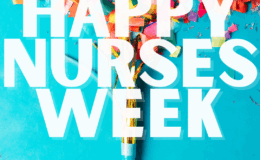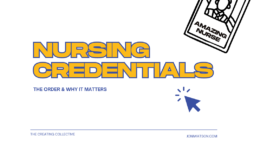Oncology nurses experience grief. All nurses experience grief. It’s part of the job we agreed to as life also encompasses death.
As a nurse leader, grief over a patient death is very similar to the grief I experienced as a frontline nurse. While I do not routinely put my hands on patients daily, I still get to know patients and their families in my role, and I get the pleasure of caring for them in ways they may never know. In addition, I get to hear nurses and the rest of the team talk about patients in care meetings or in the break room as they munch on a homemade treat a patient just happened to bring for the group. Stories and story-telling moments are vital learning sessions in healthcare, and it’s important (and sometimes fun) for me to hear these stories of our patients throughout their care.
And conversely, the grief over a patient death as a leader is different from the grief as a patient’s nurse. That bond is entirely different. Entirely.
The longer I am in leadership, the more tenderly I view my nurses and team during seasons of patient loss. It is humbling watching a group of nurses attend a viewing together or stop by an end-of-life patient’s room one-by-one, only to leave with tear-stained faces. It’s moving caring for a multidisciplinary team passing the Kleenex box around a gathered office space during work hours. It’s endearing hearing a handful of nurses share unknown stories with a family who may have never been in the care environment to experience them, showing either a completely different side of a patient or reinforcing the truest of true personalities and characteristics throughout even the hardest of health times.
Nurses are seriously some of the strongest, most courageous, versatile, and resilient people I’ve ever met. Even in their grief, they are amazing. That gathered grief shows the deep sincerity of their care to people who were once strangers to them but now forever a part of them.
Not everyone grieves together. I believe it is a sign of a strong team when grief is shared, though. What do you think?






Poppy
April 22, 2016 7:19 amI believe the moments of shared grieving are extremely beneficial for not only the nurses, frontline staff, including volunteers who come together.